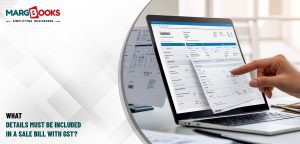The debit balance of a trading account is a financial term that shows when a company’s expenses (the money spent) are greater than its income (the money earned) during a specific period. In simpler words, it means the business is facing a loss. This happens when the costs of buying or producing goods are higher than the money made from selling them.
We’ll explain in detail what the Debit Balance Of Trading Account Means, how it occurs, why it’s important, and what it tells us about a business’s financial health. We will also cover the structure of a trading account and how debit and credit balances work.
What is a Trading Account?
A trading account is a financial report that helps a business understand whether it made a profit or a loss during a certain time. It focuses on all the buying and selling activities of the business, including the cost of the goods sold and the income from selling those goods.
The trading account is like a summary of the business’s daily operations, such as:
- How much money was made from selling goods (sales revenue)
- How much money was spent on buying goods (cost of goods sold, or COGS)
- Other expenses directly related to the production, like wages or delivery costs
At the end of the period, the business calculates either a gross profit or gross loss by comparing its earnings with its costs.
Structure of a Trading Account
A trading account has two sides:
- Debit side (expenses): This side shows the costs, like buying products or paying workers.
- Credit side (income): This side shows the income from selling goods or services.
If the income on the credit side is higher than the expenses on the debit side, the business has a gross profit. But if the expenses are higher, the business has a debit balance, which shows a gross loss.
What Does Debit Balance Of Trading Account Means?
A debit balance means that the costs of running the business are higher than the income. When a business spends more than it earns from selling goods, this results in a debit balance. This situation indicates that the company didn’t make enough money to cover its direct costs.
For example, if a company spent ₹500,000 on goods and only made ₹450,000 from selling them, the debit balance would be ₹50,000. This shows that the company has a loss for that period.
Why Does a Debit Balance Happen?
A debit balance can occur for several reasons, including:
- High cost of goods: If the cost of producing or buying goods is too high, it increases expenses.
- Low sales: When a business doesn’t sell enough products, it doesn’t make enough money to cover its costs.
- High direct expenses: Things like wages, rent, and utilities can add up and cause a debit balance if they are too high.
- Excessive purchasing: If a business buys too much stock and can’t sell it, this can lead to losses.
Importance of the Debit Balance of Trading Account
The debit balance is an important sign of how well a business is doing. It shows that the company is not making enough money to cover its basic costs. If not handled properly, this can cause long-term financial problems.
Here’s why the debit balance matters:
- It shows that the company needs to cut costs or increase sales to avoid further losses.
- It alerts business owners to take action before the company’s losses get worse.
- It helps in planning future strategies to improve profitability.
How is a Debit Balance Handled in Accounts?
When a business has a debit balance in its trading account, it shows a gross loss. This loss is carried over to the profit and loss account. Here, additional expenses are added, and if the total expenses are still greater than the total income, the company ends up with a net loss.
The process works like this:
- Trading Account: The debit balance (or gross loss) is calculated.
- Profit and Loss Account: The gross loss is transferred here, and additional expenses are added. The result will show if the company has a net loss.
- Balance Sheet: The final net loss (or profit) is shown in the balance sheet, giving a clear view of the company’s overall financial situation.
Impact of a Debit Balance on a Business
A debit balance can have serious consequences for a business. Here’s how it can affect the company:
1. Cash Flow Problems
If a business is constantly spending more than it’s earning, it will eventually run out of cash. This can cause delays in paying suppliers, wages, or other important bills, which can harm the company’s reputation and operations.
2. Difficulties with Investors
Investors look for profitable companies. If a business has frequent debit balances, investors may hesitate to provide funding because it shows the business is struggling.
3. Need for Better Planning
A debit balance forces businesses to rethink their strategies. They may need to cut costs, find ways to increase sales, or improve their pricing to avoid further losses.
Example of a Debit Balance in a Trading Account
Let’s look at a simple example. A company has the following financial details for the year:
- Sales: ₹400,000
- Purchases: ₹350,000
- Direct wages and expenses: ₹80,000
Here’s what the trading account might look like:
| Particulars | Debit (₹) | Credit (₹) |
|---|---|---|
| Purchases | 350,000 | |
| Direct Wages/Expenses | 80,000 | |
| Sales Revenue | 400,000 | |
| Total | 430,000 | 400,000 |
In this case, the company’s expenses total ₹430,000, but its income is only ₹400,000. This leaves a debit balance of ₹30,000, which represents a gross loss.
How to Avoid a Debit Balance in a Trading Account
While a debit balance can happen, businesses can take steps to avoid it. Here are some ways to reduce the risk of having a debit balance:
1. Control Costs
Managing production costs is key to avoiding a debit balance. Businesses can negotiate better deals with suppliers, reduce waste, and find ways to produce goods more efficiently.
2. Increase Sales
To avoid a debit balance, businesses need to focus on increasing sales. This can be done by offering discounts, promoting products more effectively, or reaching new customers.
3. Manage Inventory
Buying too much stock can lead to high costs. By managing inventory carefully, businesses can reduce unnecessary spending and avoid a debit balance.
4. Adjust Pricing
Sometimes, a debit balance occurs because the business isn’t charging enough for its goods or services. Reviewing and adjusting prices can help cover costs and avoid losses.
5. Monitor Expenses
Keeping a close watch on expenses like wages, rent, and utilities can help prevent a debit balance. Businesses should regularly review their spending to make sure it’s under control.
Conclusion
The debit balance of a trading account means that the company is spending more than it’s earning, leading to a gross loss. This situation shows that the business needs to take action, whether by cutting costs, increasing sales, or improving its overall strategy. By understanding what a debit balance means and how to handle it, businesses can better manage their finances and work towards a more profitable future. Monitoring expenses, managing inventory, and keeping costs low are all effective ways to avoid a debit balance and ensure long-term financial stability.
Also Read
- What Details Must be Included in a Sale Bill with GST?Getting your GST paperwork wrong feels like walking through a minefield, doesn’t it? One missing detail on your invoices, and suddenly you’re dealing with compliance headaches that could’ve been easily avoided. Creating a proper Sale Bill with GST isn’t rocket… Read more: What Details Must be Included in a Sale Bill with GST?
- How Is a Purchase Bill with GST Different from a Sales Invoice?Running a business in today’s GST-enabled economy requires more than just selling and buying. It’s about being organised, compliant, and aware of what each document in your billing system stands for. One common confusion many businesses face is the difference… Read more: How Is a Purchase Bill with GST Different from a Sales Invoice?
- How Can You Generate a Mobile GST Bill in Seconds?Running a shop is hard enough. But when billing takes forever and GST compliance gets messy, things can slow down. That’s where a Mobile GST Bill comes to the rescue. Whether you run a busy garment store or a local… Read more: How Can You Generate a Mobile GST Bill in Seconds?
- What Happens If GST on Advance Received Is Not Paid on Time?Running a business in India requires keeping pace with ever-evolving tax laws, and GST in advance is one such area that many businesses often overlook sometimes unintentionally. But missing out on timely GST payment on advances can lead to unnecessary… Read more: What Happens If GST on Advance Received Is Not Paid on Time?
- How Does the 9988 HSN Code Impact GST Filing for Businesses?Navigating the complexities of GST can be daunting, especially for service-based businesses in India. Among the many elements of GST compliance, the HSN (Harmonised System of Nomenclature) code plays a crucial role in categorising goods and services. One such classification… Read more: How Does the 9988 HSN Code Impact GST Filing for Businesses?
Frequently Asked Questions
What is a debit balance in a trading account?
A debit balance in a trading account means that a business has spent more money on expenses than it has earned from sales. This indicates a loss during that accounting period. It is essential for businesses to monitor this balance to ensure financial health.
How does a debit balance occur?
A debit balance occurs when the costs of goods sold and other expenses exceed the income generated from sales. Factors like high production costs, low sales, or excess inventory can contribute to this situation, leading to a financial loss.
Why is a debit balance important for businesses?
A debit balance is important because it signals that a business is not making enough money to cover its costs. Recognizing this early can help business owners take action to cut costs, increase sales, or change strategies to avoid further losses.
How can I check my trading account for a debit balance?
To check for a debit balance, review the trading account statement. Look at the total expenses (debit side) and total income (credit side). If expenses are higher than income, you have a debit balance, indicating a loss for that period.
What happens if my business has a continuous debit balance?
If a business has a continuous debit balance, it may face serious financial problems, such as cash flow issues and trouble meeting expenses. Long-term losses can damage the company’s reputation and make it hard to secure funding or investment.
Can a debit balance be fixed?
Yes, a debit balance can be fixed by improving sales, cutting costs, and better managing expenses. Businesses should analyze their financial reports regularly and make necessary adjustments to turn a debit balance into a profit.
How does a debit balance affect my cash flow?
A debit balance can negatively affect cash flow because it indicates that expenses are exceeding income. If this situation continues, the business may struggle to pay bills, suppliers, and employees, leading to cash flow problems.
What is the difference between debit and credit balance?
A debit balance shows that expenses exceed income, resulting in a loss. In contrast, a credit balance indicates that income is greater than expenses, resulting in a profit. Understanding the difference helps businesses evaluate their financial health.
How can I avoid a debit balance in my trading account?
To avoid a debit balance, control production costs, increase sales, manage inventory effectively, and regularly review pricing strategies. Keeping a close eye on expenses can help ensure that income remains higher than costs.
What should I do if I notice a debit balance?
If you notice a debit balance, review your financial statements to understand the causes. Identify areas to cut costs or improve sales. Consider seeking advice from a financial expert if the issue persists, to develop a solid plan for recovery.






